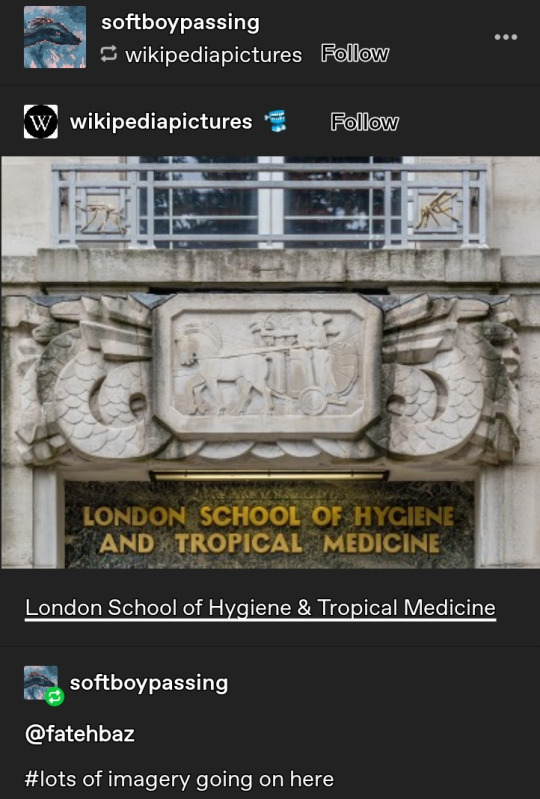#End Jim Crow Laws
Explore tagged Tumblr posts
Text
Support the Inclusive Democracy Act of 2023 (H.R.6643 / S. 3423)
An open letter to the U.S. Congress
576 so far! Help us get to 1,000 signers!
Despite his 34 felony convictions, Donald Trump has the wealth, connections, and privilege to ensure he doesn’t have to worry about his eligibility to vote this fall. But the millions of ordinary Americans currently disenfranchised by felony convictions aren’t so lucky. That's why, as your constituent, I urge you to co-sponsor and support the Inclusive Democracy Act of 2023 (H.R.6643 / S. 3423) to guarantee voting rights to ALL Americans. Right now, Jim Crow-style felony disenfranchisement laws deny voting rights to over 4.4 million Americans. The Inclusive Democracy Act of 2023 comprises a series of transformative measures that would end the broken system of felony disenfranchisement and empower marginalized communities: - Guaranteeing the right to vote in federal elections to all Americans who have criminal convictions. - Eliminating state-level barriers that prevent individuals with criminal convictions, whether they are incarcerated or have been released, from exercising their right to vote in federal elections. - Ensuring citizens in carceral settings have access to information about elections and candidates 29 Members of Congress have signed on as sponsors or co-sponsors of the Inclusive Democracy Act of 2023. If you haven’t already, please join your colleagues and add your name to that list. And if you’re already a co-sponsor – thank you, and please do everything you can to help pass this groundbreaking legislation into law.
▶ Created on October 14 by Jess Craven · 575 signers in the past 7 days
📱 Text SIGN PGODGR to 50409
🤯 Liked it? Text FOLLOW JESSCRAVEN101 to 50409
#JESSCRAVEN101#PGODGR#Inclusive Democracy Act#Voting Rights#Felony Disenfranchisement#Support Voting Rights#H6643#S3423#Vote For All#Empower Marginalized Communities#End Jim Crow Laws#Voting For Everyone#Voting Is A Right#Reform Voting Laws#Criminal Justice Reform#Restoration Of Voting Rights#Civil Rights#Access To Voting#Electoral Justice#Join The Movement#Sign The Petition#Advocate For Change#Fair Elections#Democracy For All#Voices For Change#Civic Engagement#Social Justice#Vote2023#Legislative Action#Congressional Support
2 notes
·
View notes
Note
if lbj was like that, why’d he push so hard for those bills?
The thing about American presidents especially during that time is that many of them were personally extremely racist but politically progressive as in still passing and lobbying for civil rights legislation.
Truman was kind of a bigot and definitely said a lot of slurs and held a lot of evil beliefs in his heart for his entire life. But he was pretty appalled at the wave of lynchings against black veterans after World War II because he was a veteran, and long story short the NAACP convinced him to try doing anything but Congress wouldn’t bite so he did what he could and integrated the military and civil service.
Eisenhower didn’t believe in the civil rights movement and thought that black activists including MLK were asking for too much too fast and that racist white southerners were good people, but he hated when massive resistance defied federal law and was worried about the USSR using Jim Crow for anti-American propaganda so he sent the army to integrate schools at gunpoint and passed civil rights legislation that said you can’t do massive resistance anymore you must comply.
Johnson was complicated. Said and did many racist things. Started vietnam war. He taught at a segregated school in a really desperately poor part of Texas after growing up in poverty himself, and to an extent was genuinely motivated by the principle of it. However, as a senator, he blocked all this stuff. But when he was the vice president, it became clear that it was going to be really politically expedient for him to do this and he wanted to establish a legacy of building a great society. Also, he definitely knew that if he signed it, everyone who got reinfranchised would probably vote democratic forever.
What you believe on principle and what you decide to do with power when you have it are different things. Sometimes against all odds that means that deeply problematic people end up benefiting society. 
#The thing about LBJ is that anyone who gets to be Senate majority leader IS an evil ruthless rat bastard motherfucker on some level#it would not have been as politically expedient if JFK hadn’t died the momentum might not have been there
241 notes
·
View notes
Note
I suddenly thought of an interesting question. What is the purpose of democracy? Is it democracy for democracy's sake? democracy exists to protect human rights. Voting is one of the most typical expressions of democracy, but if, due to the tyranny of the majority—the so-called ‘will of the people’—the human rights of the country’s citizens are actually severely harmed (as in the case of this U.S. election), what then? Does democracy, at this stage, still have any meaning to uphold?I mean, suppose, at this moment, one party were to take power through undemocratic means, such as election manipulation, a coup, or assassination, but this party’s policies were, comparatively, more protective of human rights than the opposing party’s. From an objective standpoint of justice, should it be supported at this stage?🤔
I think this is indeed an interesting question and I'll try to answer it in two parts.
First, the idea that "democracy exists to protect human rights" is a considerably recent idea, and doesn't actually figure much into classical expressions/conceptions of democracy. As it was originally practiced in Athens, it had nothing to do with safeguarding the rights of marginalized groups (indeed, if anything, the opposite). It was just a system where groups of people, i.e. property-owning citizen men, were allowed to make decisions collectively, but it was still able to be adjourned at any time for a despot (in the classical sense) to resume autocratic authority. It just means a system in which the people (demos) have authority (kratia). That means, therefore, who constitutes as a "person" under the law is one of the longest-running questions (and struggles) in the entire history of the concept.
As it was then thought about in the Enlightenment and the 18th-century context in which the founding fathers wrote the US Constitution, "democracy" was very much the same idea of a small group of "worthy" but ordinary men making decisions in a quasi-elected framework, rather than as a single inherited monarchy. There was still no particular idea that "human rights" was a goal, and would have been foreign to most political theorists. There was an emerging idea of "natural rights" wherein man (and definitely man) was a specially rational creature who had a right to have a say in his government, but yet again, that depended on who was viewed as qualified to have that say. (The answer being, again, white property-owning Christian men.) There have been many constitutional law papers written on how much the founding fathers trusted the American electorate (not very) and how the American government was deliberately designed to work inefficiently in order to slow down the implementation of possibly-stupid decisions (but therefore also potentially-helpful ones). The Electoral College, aside from being an attempt to finesse the slavery question (did slaves count as people for purposes of allotting House representatives? James Madison famously decided they counted as three-fifths of a person), was a further system of indirect republicanism. Likewise, US Senators were not popularly elected on a secret ballot, the same as the president, until the passage of the 17th Amendment in 1913.
Of course at the same time in the 19th-early 20th century, the Civil War, Reconstruction and its end, Jim Crow, women's suffrage movements, were all ongoing, and represented further challenge and revision of what "democracy" meant in the American context, and who counted as a legally recognized person who was thus entitled to have their say in government. It was not until Black people and women began insisting that they did in fact count as people that there was any universal idea of "human rights" as expressed in popular democratic systems. This further developed in the 20th century in the world war context, and then in the decolonization waves in the 1950s and 1960s that dismantled European imperialism and gave rise to a flood of new nation-states. Etc. etc., the Civil Rights movement in America, the gay rights movement starting with Stonewall, and further expansion of who was seen as a person not just in the physical but the legal and actionable sense.
That's why we have political philosophy concepts of "electoral" and "liberal" democracies, and why they're not quite the same. In an electoral democracy, people have the right to vote on and elect their leaders, but there may be less protection of associated "liberal" rights such as freedom of speech, freedom of religion, freedom of expression and assembly, and other characteristics that we think of in terms of protected groups and individual rights. Liberal democracies make a further commitment to protect those rights in addition to the basic principle of voting on your leaders, but as noted, democracy does not inherently protect them and if you have a system where a simple majority vote of 49% can remove rights from the other 48%, you have a problem. Technically, it's still democracy -- the people have voted on it, and one side voted more than the other -- but it's not compatible with justice, which is a secondary question and a whole other debate.
In the modern world, autocrats have often been popularly elected, which is technically a democratic process, but the problem is that once they get there, they start dismantling all the civic processes and safeguards that make the country a democracy, and make it much harder for the opposition to win an election and for power to meaningfully change hands. See for example India (Narendra Modi/BJP), Turkey (Recep Tayyip Erdoğan/AKP), Poland (Jarosław Kaczyński/PiS), Hungary (Viktor Orbán/Fidesz), Russia (Vladimir Putin/United Russia) and America (Donald Trump/GOP). Some of these countries were more democratic than others to start with, but all of them have engaged in either significant democratic erosion or full authoritarian reversion. The US is not -- yet -- at the latter stage, as I have written about the features of the system that make it different from other countries on that list, but it's in the danger zone.
Lastly, the idea of "we're morally better and protect human rights but are willing to launch a coup/assassination/etc of the current government" has been claimed many, many times throughout history. It has never been the case. Not least since if a party in a democratic system, however flawed, is willing to throw aside the core feature of that system, they simply don't respect human rights in any meaningful sense. That's why we kept having "the people's revolutions," especially in the 20th century, that promised to uphold and liberate the working class and all ended up as repressive communist dictatorships functionally indistinguishable from the autocracies or even quasi-democracies they had replaced. In this day and age, does anyone want Online Leftists, who will cancel and viciously attack fellow leftists for tiny disagreements on the internet, deciding that they're going to overthrow the government and announce themselves the great protector of human rights? Aside from the fact that they couldn't do it even if they ever tried and stopped being insane keyboard warriors, I don't think anyone would believe them, and nor should they, because violent antidemocratic groups are bad. This is the sixth-grade level explanation, but it's true.
If you're so drastically committed to your ideology that you're willing to destroy everyone else for not agreeing (and even then, post-revolution, the revolutionaries always start eating each other), then you're not special or enlightened. You're the exact same kind of ideological zealot who has been responsible for most of the worst atrocities throughout history. When "I need to kill for my beliefs but I'll clearly only kill the right people" is your guiding philosophy, the "right people to be killed" quickly expand past any controls or laws. Why not, especially when you've just declared the law to be invalid? Pretty soon you're into death-squads and extrajudicial-assassinations territory, and no matter how soaringly noble your aims were to start with, you've become much worse than what you replaced.
This does not mean "we all have an obligation to obey oppressive governments because the alternative is worse," which has been likewise used by the oppressive governments who benefit from it. It just means that if a democracy is violently overthrown, what emerges from it -- no matter how nice their rhetoric might initially sound -- will invariably be much worse. Winston Churchill famously remarked that democracy is the worst form of government except for all the alternatives, and in this, I tend to agree with him. It sucks, but there's nothing that has yet been invented that can take its place or that has any interest in protecting human rights in the way that 21st-century liberal democracy has generally accepted it has an obligation to do, however partial, flawed, and regressive it can often be. Indeed right now, in this particular historical moment, the only feasible alternative is quite clearly far-right populist fascist theocratic authoritarianism, and that -- for you fortunate Americans who have never lived under anything like that -- is much, much worse. So yeah.
159 notes
·
View notes
Text
Stage/Fright
This post was used to track guest appearances during the West End run of Stage/Fright. I updated it after every show (twice on matinee days!) until the final performance at The Wyndham's, 5th April 2025
Leaving it here as a historical record. Each guest's name now links to a post with more details about their appearance courtesy of @fuckyeahstagefright! Last updated 12/07/25
I update this post after every show - that’s every day Mon-Sat and twice on matinee days! (Thursday and Saturday)
Photos and reviews are at the end of this post
I'm going to try and track the celebrity guests throughout the run. Asks/DMs are open if you have a tip for a show you've attended, or you can comment below.
Celebrity guests
(plus the mime for their name and the show name / character name / catchphrase that Len keeps getting wrong)
Previews
16/01/25 - Jim Howick (Gym Cow Sick - Horrible Histories) 17/01/25 - Ralf Little (Death in Paradise) 18/01/25 - The Actor Kevin Eldon (Cave In Held On - Fist of Fun) 20/01/25 - David Morrisey (Day Vid Morris [Boris] See - The Walking Dead) 21/01/25 - Marc Wootton (Mr Poppy, Nativity) 22/01/25 - Adrian Dunbar (Ted Hastings, Line of Duty) 23/01/25 - Nick Mohammed (Nick More Ham Head - Ted Lasso) 24/01/25 - Katherine Parkinson (Cat Thin Parking Sun - The IT Crowd) 25/01/25 - Gary Kemp (Car Reek Hemp - the running joke was the Spandau Ballet song 'True') / Martin Freeman (Fart Tin Three Man - Bilbo Baggins, The Lord of the Rings) 27/01/25 - Matthew Kelly (Mat You Ceilidh - Stars in Their Eyes) 28/01/25 - Lee Mack (Lemur Ick - Not Going Out)
Press night and end of previews
29/01/25 - Alexander Armstrong (All Lick Hair Arms Wrong - Classic FM) 30/01/25 - Daniel Mays (Down Yell [Theresa] Mays - Line of Duty) 31/01/25 - Mat Baynton (Mat Pain Tonne - Horrible Histories)
01/02/25 - Les Dennis (Les[bian] Tennis - New Faces) / David Harewood (Day Vid[eo] Hair Wood - Martin Luther King, The Mountaintop) 03/02/25 - Tamsin Greig (Tame Sing Gregg - Friday Night Dinner) 04/02/25 - Monica Dolan (Moan Knickers Dough Lamp - Mr Bates vs the Post Office) 05/02/25 - Ophelia Lovibond ([James] Bond - W1A) 06/02/25 - Julian Rhind-Tutt (Julie [Andrews] Wine Tut - The Madness of King George) / Paterson Joseph (Peep Show) 07/02/25 - Mel Giedroyc (Smell Head Roy [Orbison] - The Great British Bake Off) 08/02/25 - Denis Lawson (Dentist Law Son - Star Wars) / Sue Perkins (Soup Hare Skins - Great British Bake Off) 10/02/25 - Dara Ó Briain (Parachute O Brie - Mock the Week) 11/02/25 - Rory Kinnear (Roar Reek In Ear - Black Mirror) 12/02/25 - Matt Berry (Mat Bear Eye - The IT Crowd) 13/02/25 - Mackenzie Crook (Mack Hen See Rook - The Detectorists) / Mark Bonnar (Boner - Line of Duty) 14/02/25 - Phil Daniels (Fill - Quadrophenia) 15/02/25 - Emilia Fox (Meal Ear Fox - Silent Witness) / Sarah Hadland (Sir A Add Land - Strictly Come Dancing) 17/02/25 - Gemma Whelan (Jam A Wee Land - Yara Greyjoy, Game of Thrones) 18/02/25 - Joe Thomas (Sew Tom[cat] Ass - Fresh Meat) 19/02/25 - Lenny Henry (Sirloin Knee Hen Wee - Comic Relief) 20/02/25 - Matthew Horne (Mat Horn - Gavin and Stacey) / Nigel Planer (Gel Plane - Filthy, Rich & Catflap) 21/02/25 - Charlie Higson (Charl[eston] Lie His Son - Swiss Tony, The Fast Show) 22/02/25 - Morgana Robinson (Mow Garden Robin Son - Pippa Middleton, The Windsors) / Mark Gatiss (Margate Tits - The League of Gentlemen) 24/02/25 - Rob Brydon (Rob Bride On - Would I Lie to You?) 25/02/25 - Gareth Malone (Car Alone - Military Wives) 26/02/25 - Liza Tarbuck (Please A Starbucks - Upstart Crow) 27/02/25 - Bob Mortimer (Knob More Timer - Gone Fishing) / Julian Clary (Jewel Ink Lairy - The Joan Collins Fan Club) 28/02/25 - Stephen Merchant (Steep Hen Merchant - The Office)
01/03/25 - Robin Askwith (Rob Bin Ass Quiff - The Madame Blanc Mysteries) / Matt Lucas (Mat Loo Gas - The Great British Bake Off) 03/03/25 - Jane Horrocks (Jay No Rocks - Bubble, Absolutely Fabulous) 04/03/25 - understudy show - Steve Pemberton (Steed Pen Button - Inside No 9) 04/03/25 - Joel Dommett ([Billy] Joel Dominatrix Meet - The Masked Singer) 05/03/25 - Alex Horne (All Licks Horn - The Horne Section) 06/03/25 - Micky Flanagan (Mick [Jagger] Key Flannel - "Out out") / Josh Widdicombe (Posh Wee Dick Cum - The Last Leg) 07/03/25 - Joe Pasquale (Joke Pass Quality Street - New Faces) 08/03/25 - Paul Chuckle (Pull Chuck El[bow]- “To me, to you”) / Michael Sheen (Mic[rophone] El[bow] Shin - Good Omens) 10/03/25 - Stewart Lee ([Air] Steward Wee - Stewart Lee's Comedy Vehicle) 11/03/25 - Chris McCausland (Cry Smack Oars Land - Strictly Come Dancing) 12/03/25 - David Walliams (Slay Vid[eo] Wall Iams - Britain's Got Talent) 13/03/25 - Pauline McLynn (Pull Lean Muck Lean - Mrs Doyle, Father Ted) / Richard Osman (Reach Hard Oz Man - The Thursday Murder Club) 14/03/25 - Tamzin Outhwaite ([Lion] Tamer In Mouth Weight - Red Cap) 15/03/25 - Clive Anderson (Clay Van Der Son - Whose Line Is It Anyway?) / Stephen Fry (Steep Hen Fry - Jeeves and Wooster) 17/03/25 - Paul Merton (Pull Mare Tonne - Have I Got News for You?) 18/03/25 - Mark Addy (The Full Monty) 19/03/25 - Adam Buxton (A Dam Books Tonne - The Adam and Joe Show) 20/03/25 - Elaine Paige (E Lane Page - I Know Him So Well) / Jason Manford 21/03/25 - Romesh Ranganathan (Row Rang - The Weakest Link) 22/03/25 - Neil Morrissey (Knee [Elm] Tree - Bob The Builder) / Paul Whitehouse (Pull Why Toes - Gone Fishing) 24/03/25 - Simon Pegg (Sigh Mump Leg - Mission Impossible) 25/03/25 - Meera Syal (Me - Goodness Gracious Me) 26/03/25 - Robert Lindsey (Robbing Lean Sassy - My Family) 27/03/25 - Danny Dyer (Fan Knee Higher - Eastenders) / Su Pollard (Soup All Hard - You Rang Milord?) 28/03/25 - Danny Baker (Fan Knee Baker - Pets Win Prizes) 29/03/25 - Ross Noble (Row Snowball - Have I Got News For You) / Prof Brian Cox (Brr Iron Cocks - Things Can Only Get Better) 31/03/25 - David Tennant (Slay Vid Ten Ants - Doctor Who)
01/04/25 - Sandi Toksvig ([de]Tox Fig - QI) 02/04/25 - Sophie Willan (Sew Feet Willy - Alma's Not Normal) 03/04/25 - Miles Jupp (My Edge Jump - The Thick of It) / Phoebe Waller-Bridge (Feet Bee Wallop Bridge - Fleabag) 04/04/25 - Sir Ian McKellan (Serene Muck Alan [Sugar] - Lord of the Rings) 05/04/25 - Louis Theroux (Loo Wee T (kanga)roo - Weird Weekends) /Jonathan Ross (Johnny Thin Rose - The Masked Singer)
Press Night Photos by Marc Brenner









#stage/fright#spoilers#2025#inside number 9#in9#review#stage/fright spoilers#press and pr#masterlist#masterpost
147 notes
·
View notes
Text
As much as I love Hailee Steinfeld and think she knocked it out of the park in Sinners, I can't shake the feeling Mary and Stack's relationship would've been better as a platonic brother sister relationship.
I personally didn't get much romantic chemistry in her scenes with Michael B Jordan and really, there wouldn't have been much difference to the plot if their relationship was platonic:
It's established Mary's mother raised Smoke and Stack after their father's death; they grew up together, so already it makes sense they'd view each other more like family. It's also mentioned Mary has a biracial grandfather; under the One Drop Rule, in that period of time, she would have been considered black, despite also passing easily as a white woman. She ended up marrying a rich white guy in Arkansas because best case scenario, he never finds out where she comes from and she lives the rest of her life separated from her community. Stack wants Mary to stay away from them and him, because her having any relationship with black people is basically a potential death sentence for everyone involved.
I think having this conflict but emphasizing Stack and Mary's relationship as adoptive brother and sister, Mary resenting him for pushing her to get married/abandon everything she knows for a chance at living life unhindered by Jim Crow laws, would be a more interesting angle to focus on than the romance. In my version of Sinners, Stack wants to protect his adoptive sister and Mary doesn't want to be alienated from him or her community but what choice do they really have in fucking 1930's Mississippi?
Also it doesn't help there's a ten year age gap between the actors; for me, a big brother, little sister dynamic would have been more believable. Also also, it felt kind of awkward when the two would get hot and heavy scenes. Like MBJ is a beautiful man and Hailee Steinfeld is gorgeous and they do work well off of each other with banter....but for the life of me, I could not feel the spice from them. Even in press interviews they give off a sibling vibe, it probably would have come more naturally if that was Stack and Mary's relationship in the movie.
I still love this movie, but if I had to say one thing I would change, it'd have to be this. It doesn't ruin the movie for me by any stretch of the imagination, I'm definitely going to see Sinners again while it's still in theaters.
#sinners 2025#sinners#ryan coogler#michael b jordan#hailee steinfeld#elias stack moore#mary (sinners 2025)#just some thoughts#go see it
61 notes
·
View notes
Text
Friendly reminder: the riots would have never happened if it were not for the violence of ICE. I oppose rioting, but at the end of the day, a riot is the cry of an abused, neglected people. Objects can be replaced and repaired.
The people who caused this are ICE, not the Latinx community. ICE are the US government’s Gestapo. They are Trump’s personal attack dogs used to terrorize anyone he does not like. The people being attacked are not violent criminals. They are innocent Black and Brown families. What the government does to its most vulnerable civilians is what they are willing to do to all of us, it’s just that through racist and xenophobic propaganda, they can more easily get away with cruelty such as what we have been seeing the last few months.
Being undocumented is not a crime.
Not knowing English is not a crime.
Not being White is not a crime.
Most important of all: the law is not to be used as a moral compass. Nazism was legal in Germany once, it was not only encouraged but expected. Jim Crow laws legalized racial discrimination through segregation and inspired race massacres. The law is not morality.
36 notes
·
View notes
Text
We will never know the internal strength needed by Vice President Kamala Harris to preside over the official certification of her own electoral defeat. On the anniversary of a Capitol rampage perpetrated by fans of the 45th and now 47th president, Harris fulfilled her duties with grace and with dignity.
Difficult as it is, the Democrats in Congress have all acknowledged the results of the 2024 election. Many of the Republicans, on the other hand, who stood in the congressional chamber and applauded Harris’ quick and seamless certification never publicly accepted the legitimacy of President Joe Biden’s win.
...
But it is not lost on me that Harris presided over the certification ceremony just two days after voting rights activist Fannie Lou Hamer received the Presidential Medal of Freedom posthumously at the White House.
Hamer’s image is seared into national history as a Black female civil rights warrior who boldly challenged the status quo by demanding that she and other activists be recognized at the 1964 Democratic National Convention as members of the integrated Mississippi Freedom Democratic Party.
...
In June 1963 Hamer was brutally beaten in jail by law enforcement officers in Winona, Mississippi. Law enforcement officers forced Black prisoners in the jail to participate in Hamer’s assault. She almost died.
The violence was grotesquely harsh even by Jim Crow standards. Hamer was alternately battered by two Black prisoners, Roosevelt Knox and Sol Poe, who were reportedly ordered to strike Hamer or face a beating themselves. She was forced to lie face down as the two prisoners pummeled her with loaded blackjacks — police clubs filled at the ends with sand or metal pellets.
As Hamer drifted back into consciousness, she overheard the officers discussing the possibility of throwing her into the river.
Hamer never fully recovered. She partially lost sight in one eye, walked with a limp and suffered permanent and debilitating kidney damage that may have contributed to her death at age 59 in 1977. [...]
58 notes
·
View notes
Text
L.B.J.'s Great Society Programs (paid for with the "lock-box" funds of Social Security) were designed to destroy the Black family, drive away the fathers and create a dependent class of Democrat voters in order to recreate a class of mindless slaves that would "Have those n!ggers voting for Dems for the next 50 years" ...
That is a direct quote from L.B.J.
... and Oprah, Whoopie and the rest of the Racist Pimping crowd tell Blacks to hate Republicans (who were established to end slavery) and support the Democrats (who supported slavery and wrote the Jim Crow Laws) which is why Democrats wanted their slaves ignorant ... they were easier to control ...
#bjb oldgayjew prophecy's shout#bjb oldgayjew#history's ghost - screaming - again#john galt bjb#barsefrin - the elder#bjb - barsefrin#bjb#bjb - oldgayjew#john galt#oldgayjew - my blog
38 notes
·
View notes
Text
Kentucky Derby's Untold Story: Black Horsemen Made Racing History!
Today is Derby Day 2025, and while everyone’s watching odds, post times, and horses — here’s the story you won’t see on the broadcast.
In 2022, longshot Rich Strike shocked the world — but the man behind that miracle? A Black groom named Jerry Dixon Jr., part of a legacy dating back to the 1800s.
Did you know Black jockeys dominated the early Kentucky Derbies? Isaac Murphy won it three times. Black horsemen built this sport before Jim Crow laws pushed them out of the spotlight.
So while you’re checking who’s racing at Churchill Downs today — remember: the Derby isn’t just about speed. It’s about history, and that history is Black. #Watch to the end — and share this story.
🎥 For more stories that connect culture + history, follow @coppertvstudio.
#KentuckyDerby2025#DerbyDay2025#BlackExcellence#KentuckyDerby#KentuckyDerbyStartTime#TripleCrownRaces#RichStrike#KentuckyDerbyField#black history#DerbyHistory
40 notes
·
View notes
Text
On social media the USA population are asking anyone from outside countries to properly document what is happening to them right now as they can't or are not able to.
As of the 20th of January 2025 up to the 24th January 2025 the following has happened:
Trump has signed several executive orders including:
Ruling that the United states will only recognise two genders, woman and man, and ones gender is determined by the sex they were conceived as. (his words not mine. By the way, this makes everyone effectively female) despite his stupidity, we know what he means, if one is born female, they are a woman. This effectively erases non-binary folk and forcibly de-transitions trans folk. This order claims to be defending woman from harmful gender ideology. The misogyny and outright bigotry within this order is genuinely terrifying and frustrating.
Fact sheet: Trump protects civil rights and merit-based opportunities by ending illegal DEI (diversity, equity, inclusion)
The death penalty. Trump is pushing for capital punishment to be used as often as possible for a certain list of crimes. Murder being one of them. Abortion and miscarriage has been described as murder. Woman are going to be imprisoned and slaughtered because they had a miscarriage or an abortion. This would also put those born outside of the US at greater risk of murder as the laws will be stricter towards them. Reading through the official documents, if a foreigner commits a federal crime (from as little as speeding 50miles over the limit to committing murder) they will be sentanced to death.
An alarming amount of executive orders are related to foreigners and foreign affairs such as:
Guardenteeing the states protection against invasion.
Protecting the United states from foreign terrorists and other national security and public safety threats.
Fact sheet: Trump protects the United states and American citizens by closing the borders to illegals via proclamation.
Trump has also stated in an executive order that there will be armed forces at the borders to prevent "aliens" from entering the country.
Source: WhiteHouse.com. (the constitution was replaced by Trumps executive orders and the White House Legislative Branch can not be found on the official website as it has been taken down.
____________________________________________
Books are continuing to be banned and religion is re-entering the schools, indoctrinating the children.
They want to take womens right to vote. They are starting with pregnant women and women on maturity leave. If they can't keep you pregnant (if you get an abortion) you would have your right to vote stripped from you as abortion is now classified as murder which is a felony. Felons can't vote.
Jim crow laws will be reinstated. The native children will be taken. You are the people, you don't work for the government, they work for you. Get the gelatine, take back your power as the people.
When Hitler first got control, he told the jews to leave germany. When Trump got control, he told the immigrants to leave the US.
When Hitler got control, he came for the Queers first. Trump went for the queers.
When Hitler got control, he came for the disabled. Trump went for the women.
There were people who came before the jews. There are going to be people who come before those of colour. Trump is a racist, a sexist and a rapist. There will be people who come before you. Stand up for them so they will stand for you, lest you stand alone.
"When they came for the Queers, i didn't say anything because i was not Queer. When they came for the jews, i didn't say anything because i was not a jew. When they came for the women, i didnt say anything because i was not a woman. When they came for the disabled, i didnt say anything because i am not disabled. But then they came for me, and there was no one left to speak for me."
There is an Australian song about inclusively, and how when we are together we are stronger.
"We are one, but we are many. And from all acorss the lands we come, to share our dreams, and sing with one voice. I am, you are, we are Australian." Honestly, the US need this song right now.
#australia#usa#united states#left wing#leftism#feminists#radical feminism#donald trump#fuck trump#elon musk#fuck elon musk#ww2#history repeats itself#autism#black women#let me vote#suffragette#immigrants#blacklivesmatter#jim crow#abortion#abortion rights#dealth penalty#capital punishment#we are fucked#trad wife#baby making machine#you make me do too much labor#my body my choice#laws off my uterus
33 notes
·
View notes
Text
Tw: violence against women and children mentioned.
I have been an Anti-Facist Norse pagan for almost 15 years (a pretty lonely life ngl) and the best thing to come of this is my skill to sniff out alt right, facist propaganda before anyone else. Everyone tells me "it's not that deep" until they realize, yep it is that deep.
The ACOTAR books have now been added to my list of Alt Right pipelines and I am convinced that SJM herself is either currently a facist or will be spiraling towards it soon.
If any criticism of the main characters, inner circle, Night court values draws you into a frenzy where you need to use a 1300 word straw man argument to lower your heart rate and pat yourself on the back, you need to do some self reflecting.
Like who you like, I don't honestly care, I'm not here for friends, but if you justify literal Jim Crowe laws because "those people will ruin our beautiful perfect city" I am going to side eye you. That is not something a healthy, non racist, Pro humanity person fantasizes about. There is not a single, natural born illyran woman who can use her own wings under the 500 year rule of "the most powerful high lord." Fantasizing about a lazy sex crazed leader who still allows the breaking of children's bones for misbehaving, is not normal. I am not going to trust you if you justify and praise violence toward children, even fictional children.
The fact that you will go to war to defend the abhorrent policies and actions of the NC when people try to have critical discussions about the texts is shocking to say the least.
Every single character in these books are subject to criticism. SJM herself is subject to criticism for the way in which she portrays these communities and glosses over the unjust policies. The way the Jim Crow laws in Velaris were introduced is a common manipulative tactic to desensitize the reader to the policy itself, paving a way for it to, once again, exist in our world. "It just a fantasy book calm down" no. Media has always been a large method to distribute propaganda.
I don't give half a fuck who Elain ends up with but please, please, please criticize the Night court and recognize it's atrocities or it will affect how you vote and how you see the world around you.
#anti rhysand#tamlin#acotar critical#tw sa#tw dv#tw violence against women#tw violence against children#anti feyre#anti feylin#anti night court#feyre archeron#feyre acotar#nesta archeron#night court#sjmaas#sjm critical#acotar rant#anti feysand#anti acotar#elucien#elriel#gwynriel
86 notes
·
View notes
Text
the thing about octavia butler is that her works are intimately tied with race/gender and power dynamics, through the lense of deeply horny and freaky dubcon. and she does this so well! her work is a really good example of why i don't think you can neatly separate "horny" as a tone/tool from an artist's works and themes. butler frequently writes about characters who find themselves tied to/dependent on another party who has immense power every aspect of their life, who even at their kindest could hurt and destroy them easily. who will provide the main character with comfort, and genuine love, and often very satisfying sex or immense chemical pleasure through mind orgasms or whatever. and no matter the good will of the other party and how comfortable and pleasurable your current life by their side is, there is a price; there is a leash around your neck that you never truly consented to have put around your neck (or the consent came under duress/coercion or mind altering chemicals). many of these characters end up having to compromise their values and lives in order to survive because they know that life outside of this relationship, even if freely ended, will be much much harder as the world changes for the worst. anyhow, it's fascinating to see her explore these kind of dynamics, the resentment/agony and the urge to survive and all the ways it tied into being a black woman who grew up under jim crow laws (the way she writes interracial/age gap relationships in her settings too!)
38 notes
·
View notes
Note
Setting aside that economies aren’t like CD’s and you can’t just exchange them overnight, how would Daenerys have abolished slavery and immediately “replaced the economy” ?
It took the United States decades of abolitionism and an entire civil war to end slavery; it took another 100 years to take on post Reconstruction racism. The consequences of slavery, Jim Crow, and discriminatory policies didn’t vanish overnight because the laws that sustained segregation were repealed, they created generational wealth gaps, entrenched segregation, and systemic barriers. Redlining wasn’t officially outlawed until the late 1960s, yet its impact still defines housing, education, and economic inequality. Pretending these lasting effects don’t exist is either ignorant or willfully blind.
From 1789 to 1871, France have experienced a succession of short-lived regimes and witnessed a tumultuous eight decades that saw the initial constitutional monarchy replaced by a republic in 1792, only for the republic to succumb to terror to see off internal and external enemies and lose all legitimacy in a mere seven years to be toppled by its most popular general, Napoleon Bonaparte. To sum things up, in 82 years, France went through three monarchies, two empires, and two republics, the French people witnessing the fall of seven different political regimes, with a eighth, the Third Republic, being in place since the fall of Napoleon III.
History does not know just one direction, but many setbacks and cyclical motions. Leadership often works the same way. Major successes and breakthroughs rarely happen overnight. Instead, they emerge from countless small actions — strategic decisions, cultural shifts, and unglamorous (sometimes even boring) persistence — that compound over time. It makes Daenerys’ struggle to change things for the better feel a lot more realistic.
Honestly, I've wondered and I don't know. I don't want to think that it could turn out to be disappointing, how it's handled, but....
29 notes
·
View notes
Text
The differences between Hannibal and Lestat have been bothering me ever since I binged Interview with the Vampire, and I got frustrated enough to scribble 3 pages in my notebook. My conclusions are:
Institutional power. First and foremost, Lestat is connected to institutional power. In the context of IWTV, Lestat and Louis do not begin as equals, and are not able to meet each other as equals until the end of S2. (Edit: I am literally talking about him being white in the Jim Crow South) Lestat is always associated with ultimate institutional/group authority, both in New Orleans and in Paris- whether Lestat came to Paris with the intention to see Claudia (and/or Louis) die or not, he is the literal co-founder of the coven, and Claudia and Louis are being persecuted for fighting back against him. He even invokes the "Great Laws" when defending Claudia's murder.
In contrast, in Hannibal, Will is the one associated with this institutional power, even being the mentee of our ultimate lawful authority, Jack. The only time he is without this power is the brief first period of S2. Hannibal and Will begin the show as equals, and for the most part, are playing their back and forth cat-and-mouse game as equals (at least post-S1).
Betrayal. Although Louis shuts down in the face of Lestat's abuse, he never really stops being hurt by Lestat's continued betrayals. Will is hurt by Hannibal's betrayal (especially end of S1), but he knows who Hannibal is. He expects and is, in many ways, satisfied by and interested in Hannibal's continued insanity.
Daughters. Louis is the driving force behind the adoption of Claudia, and Lestat resists emotional involvement with her, is cruel to her, and, arguably, wants her dead regardless of Louis. Hannibal gives Abigail to Will himself, and has his own relationship with her. His murder of Abigail is in revenge for Will's shattering of their relationship, not about anything he hates in Abigail.
God. Hannibal is more directly godlike in comparison to the others in his narrative. Other people are vampires, but no one else can kill like Hannibal does in his world (in his absurd Bugs Bunny way). He even breaks the fourth wall (in S3) to directly invite us into his narrative. The motivation for most of what he does is curiosity rather than any central seduction (sometimes to his dismay), and his attitude is always tongue in cheek. This is also why it's important that he's not associated with institutional power- he rivals the power of God, he doesn't hide from God, he's the Devil, he is smoke, he is not bound by gender, law, time, space, the limits of the body, etc.
Ultimately, there are tons of similarities in these narratives: toxic ass murder husbands, dead daughters who are created and then sacrificed for the love of the husbands, consummation in blood, breakup in blood, European sojourn, temporary other marriages, murder as ascension, et al et al
and I'm certainly not saying that Hannibal is a good husband!!!
#i really want to see what happens in S3 when Louis and Lestat are on equal terms#i'm not actually that negative on loustat but i do think it's blatantly glorifying abuse even more so than hannibal#which like idc i'm having fun#with both#iwtv meta#iwtv#hannibal meta#hannibal#will graham#louis de pointe du lac#lestat de lioncourt#i want someone to argue with me about this so please do#diary
34 notes
·
View notes
Note
RE: Mary in Sinners. While I understand your materialist analysis, I think something that’s relevant is that in the Jim Crow era the law identifies someone as black if they are 1/16 or more. So while I agree with not subscribing to the one drop rule and looking at things from a social perspective, she would still be considered legally black if people knew about her ancestry and that’s something that needs to be kept in mind. She is very white-passing and can therefore “hide” where people don’t know and she does but that doesn’t change the historical law of the time that would categorize her as black. She’s about as black when it comes to ancestry as Homer Plessy of Plessy v. Ferguson and he was white-passing as well. Basically I see what you’re getting at but there’s historical context as to why Mary not being considered as a white woman makes sense.
Mary is capable of using her whiteness whenever she pleases. It’s her shield but also her weakness and punishment. She’s the only white/non-Black woman in the movie who dated and had sexual relationships with a Black man. That was a red flag from the beginning. Honestly, it feels like Mary was written through the eyes of a stereotypical (black) man's own sexual desires. She was raised socially as a white woman by her white mother. Her father, I believe, passed(?) She only wants to be Black because she wants to be with Stack and not because of her desire to end racial discrimination and violence. Whether or not Mary could be read as Black by law, the movie never develops that into her character arc in a meaningful or respectful way. She is still filmed, costumed, and positioned like a white (wealthy) woman in Black-centered media. If Mary's character was supposed to be a story about a mixed-race woman navigating 1930s identity politics, then where’s that story? Where’s her relationship with her father? Her community? Her personal stakes in race, caste, or survival? Instead, her “mixedness” feels like a plot device to make her sexual relationship with Stack feel dangerous and edgy, but without giving her any of the emotional or historical weight that would make her a real character.
12 notes
·
View notes
Text

"defending civilization against bugs"
lol the mosquito sculpture

see Pratik Chakrabarti's Medicine and Empire: 1600-1960 (2013) and Bacteriology in British India: Laboratory Medicine and the Tropics (2012)
---
Sir Ronald Ross had just returned from an expedition to Sierra Leone. The British doctor had been leading efforts to tackle the malaria that so often killed English colonists in the country, and in December 1899 he gave a lecture to the Liverpool Chamber of Commerce [...]. [H]e argued that "in the coming century, the success of imperialism will depend largely upon success with the microscope."
Text by: Rohan Deb Roy. "Decolonise science - time to end another imperial era." The Conversation. 5 April 2018.
---
---
---
[A]s [...] Diane Nelson explains: The creation of transportation infrastructure such as canals and railroads, the deployment of armies, and the clearing of ground to plant tropical products all had to confront [...] microbial resistance. The French, British, and US raced to find a cure for malaria [...]. One French colonial official complained in 1908: “fever and dysentery are the ‘generals’ that defend hot countries against our incursions and prevent us from replacing the aborigines that we have to make use of.” [...] [T]ropical medicine was assigned the role of a “counterinsurgent field.” [...] [T]he discovery of mosquitoes as malaria and yellow fever carriers reawakened long-cherished plans such as the construction of the Panama Canal (1904-1914) [...]. In 1916, the director of the US Bureau of Entomology and longtime general secretary of the American Association for the Advancement of Science rejoiced at this success as “an object lesson for the sanitarians of the world” - it demonstrated “that it is possible for the white race to live healthfully in the tropics.” [...] The [...] measures to combat dangerous diseases always had the collateral benefit of social pacification. In 1918, [G.V.], president of the Rockefeller Foundation, candidly declared: “For purposes of placating primitive and suspicious peoples, medicine has some decided advantages over machine guns." The construction of the Panama Canal [...] advanced the military expansion of the United States in the Caribbean. The US occupation of the Canal Zone had already brought racist Jim Crow laws [to Panama] [...]. Besides the [...] expansion of vice squads and prophylaxis stations, during the night women were picked up all over the city [by US authorities] and forcibly tested for [...] diseases [...] [and] they were detained in something between a prison and hospital for up to six months [...] [as] women in Panama were becoming objects of surveillance [...].
Text by: Fahim Amir. "Cloudy Swords." e-flux Journal Issue #115. February 2021.
---
---
---
Richard P. Strong [had been] recently appointed director of Harvard’s new Department of Tropical Medicine [...]. In 1914 [the same year of the Panama Canal's completion], just one year after the creation of Harvard’s Department of Tropical Medicine, Strong took on an additional assignment that cemented the ties between his department and American business interests abroad. As newly appointed director of the Laboratories of the Hospitals and of Research Work of United Fruit Company, he set sail in July 1914 to United Fruit plantations in Cuba, Guatemala, Honduras, Costa Rica, and Panama. […] As a shareholder in two British rubber plantations, [...] Strong approached Harvey Firestone, chief executive of the tire and rubber-processing conglomerate that bore his name, in December 1925 with a proposal [...]. Firestone had negotiated tentative agreements in 1925 with the Liberian government for [...] a 99-year concession to optionally lease up to a million acres of Liberian land for rubber plantations. [...]
[I]nfluenced by the recommendations and financial backing of Harvard alumni such as Philippine governor Gen. William Cameron Forbes [the Philippines were under US military occupation] and patrons such as Edward Atkins, who were making their wealth in the banana and sugarcane industries, Harvard hired Strong, then head of the Philippine Bureau of Science’s Biological Laboratory [where he fatally infected unknowing test subject prisoners with bubonic plague], and personal physician to Forbes, to establish the second Department of Tropical Medicine in the United States [...]. Strong and Forbes both left Manila [Philippines] for Boston in 1913. [...] Forbes [US military governor of occupied Philippines] became an overseer to Harvard University and a director of United Fruit Company, the agricultural products marketing conglomerate best known for its extensive holdings of banana plantations throughout Central America. […] In 1912 United Fruit controlled over 300,000 acres of land in the tropics [...] and a ready supply of [...] samples taken from the company’s hospitals and surrounding plantations, Strong boasted that no “tropical school of medicine in the world … had such an asset. [...] It is something of a victory [...]. We could not for a million dollars procure such advantages.” Over the next two decades, he established a research funding model reliant on the medical and biological services the Harvard department could provide US-based multinational firms in enhancing their overseas production and trade in coffee, bananas, rubber, oil, and other tropical commodities [...] as they transformed landscapes across the globe.
Text by: Gregg Mitman. "Forgotten Paths of Empire: Ecology, Disease, and Commerce in the Making of Liberia's Plantation Economy." Environmental History, Volume 22, Number 1. January 2017. [Text within brackets added by me for clarity and context.]
---
---
---
[On] February 20, 1915, [...] [t]o signal the opening of the Panama-Pacific International Exposition (PPIE), [...] [t]he fair did not officially commence [...] until President Wilson [...] pressed a golden key linked to an aerial tower [...] whose radio waves sparked the top of the Tower of Jewels, tripped a galvanometer, [...] swinging open the doors of the Palace of Machinery, where a massive diesel engine started to rotate. [...] [W]ith lavish festivities [...] nineteen million people has passed through the PPIE's turnstiles. [...] As one of the many promotional pamphlets declared, "California marks the limit of the geographical progress of civilization. For unnumbered centuries the course of empire has been steadily to the west." [...] One subject that received an enormous amount of time and space was [...] the areas of race betterment and tropical medicine. Indeed, the fair's official poster, the "Thirteenth Labor of Hercules," [the construction of the Panama Canal] symbolized the intertwined significance of these two concerns [...]. [I]n the 1910s public health and eugenics crusaders alike moved with little or no friction between [...] [calls] for classification of human intelligence, for immigration restriction, for the promotion of the sterilization and segregation of the "unfit," [...]. It was during this [...] moment, [...] that California's burgeoning eugenicist movement coalesced [...]. At meetings convened during the PPIE, a heterogenous group of sanitary experts, [...] medical superintendents, psychologists, [...] and anthropologists established a social network that would influence eugenics on the national level in the years to come. [...]
In his address titled "The Physician as Pioneer," the president-elect of the American Academy of Medicine, Dr. Woods Hutchinson, credited the colonization of the Mississippi Valley to the discovery of quinine [...] and then told his audience that for progress to proceed apace in the current "age of the insect," the stringent sanitary regime imposed and perfected by Gorgas in the Canal Zone was the sine qua non. [...]
Blue also took part in the conference of the American Society for Tropical Medicine, which Gorgas had cofounded five years after the annexation of Cuba, Puerto Rico, and the Philippines. Invoking the narrative of medico-military conquest [...], [t]he scientific skill of the United States was also touted at the Pan-American Medical Congress, where its president, Dr. Charles L. Reed, delivered a lengthy address praising the hemispheric security ensured by the 1823 Monroe Doctrine and "the combined genius of American medical scientists [...]" in quelling tropical diseases, above all yellow fever, in the Canal Zone. [...] [A]s Reed's lecture ultimately disclosed, his understanding of Pan-American medical progress was based [...] on the enlightened effects of "Aryan blood" in American lands. [...] [T]he week after the PPIE ended, Pierce was ordered to Laredo, Texas, to investigate several incidents of typhus fever on the border [...]. Pierce was instrumental in fusing tropical medicine and race betterment [...] guided by more than a decade of experience in [...] sanitation in Panama [...]. [I]n August 1915, Stanford's chancellor, David Starr Jordan [...] and Pierce were the guests of honor at a luncheon hosted by the Race Betterment Foundation. [...] [At the PPIE] [t]he Race Betterment booth [...] exhibit [...] won a bronze medal for "illustrating evidences and causes of race degeneration and methods and agencies of race betterment," [and] made eugenics a daily feature of the PPIE. [...] [T]he American Genetics Association's Eugenics Section convened [...] [and] talks were delivered on the intersection of eugenics and sociology, [...] the need for broadened sterilization laws, and the medical inspection of immigrants [...]. Moreover, the PPIE fostered the cross-fertilization of tropical medicine and race betterment at a critical moment of transition in modern medicine in American society.
Text by: Alexandra Minna Stern. Eugenic Nation: Faults and Frontiers of Better Breeding in Modern America. Second Edition. 2016.
#literally that post i made earlier today about frustration of seeing the same colonial institutions and leaders showing up in every story#about plantations and forced labor my first draft i explicitly mentioned the harvard school tropical medicine and kew royal botanic garden#abolition#ecology#imperial#colonial#bugs#indigenous#multispecies#civilization vs bugs#tidalectics#archiepalgos#my writing i guess
325 notes
·
View notes